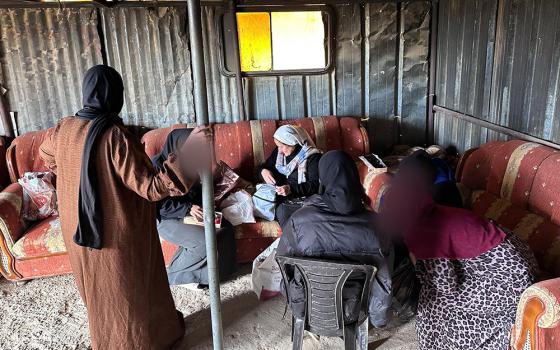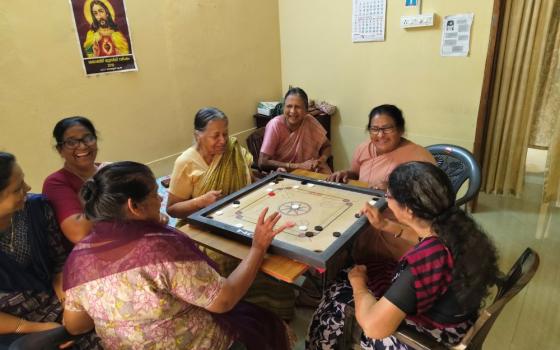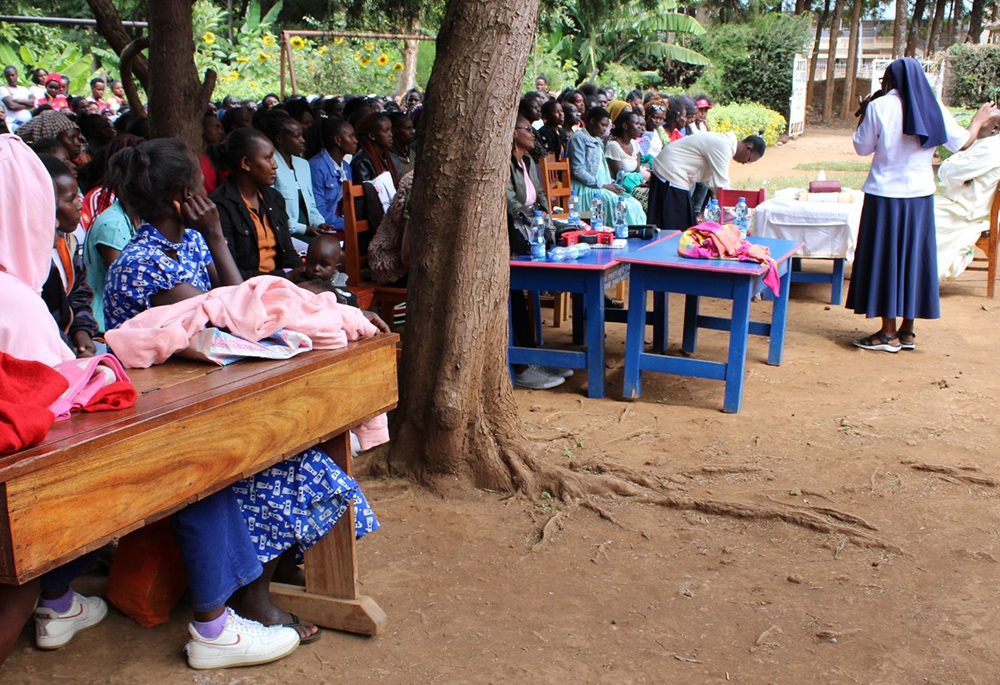
Sr. Lucy Kanjira leads a peer group training on gender-based violence in Meru, Kenya. (Courtesy of Doreen Mukami)
Editor's note: This story is part of Global Sisters Report's yearlong series, "Out of the Shadows: Confronting Violence Against Women," which will focus on the ways Catholic sisters are responding to this global phenomenon.
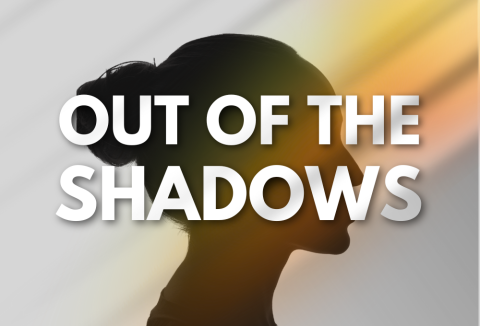
(GSR logo/Olivia Bardo)
Behind the lush highlands of Meru, home to vibrant markets with abundant fresh produce and fertile farmlands supplying the country and beyond with coffee, tea and khat, a crisis has persisted for years: gender-based violence.
According to available data and the Meru County Policy on Sexual and Gender Based Violence in 2019, nearly 67% of women in Meru County indicated they had experienced some form of gender-based violence in the past 12 months.
Furthermore, the policy reported that in a study that "looked into common forms of GBV in 5 counties, the data collected from Meru County revealed high rates of GBV, with hitting/battering/beating" at 88%, and "killings/murders of GBV victims" at 34.9%.
Five years later, gender-based violence in Meru continues. According to a recent report by Kenya's The Star, police recorded 336 gender-based violence cases between January 2024 and May 15, 2025. The Star also reported on teenage pregnancies in Meru, with "over 9,500 teen mothers recorded in 2023 alone" and sub-county Igembe Central reporting 1,700 pregnancies between January and May 2025.
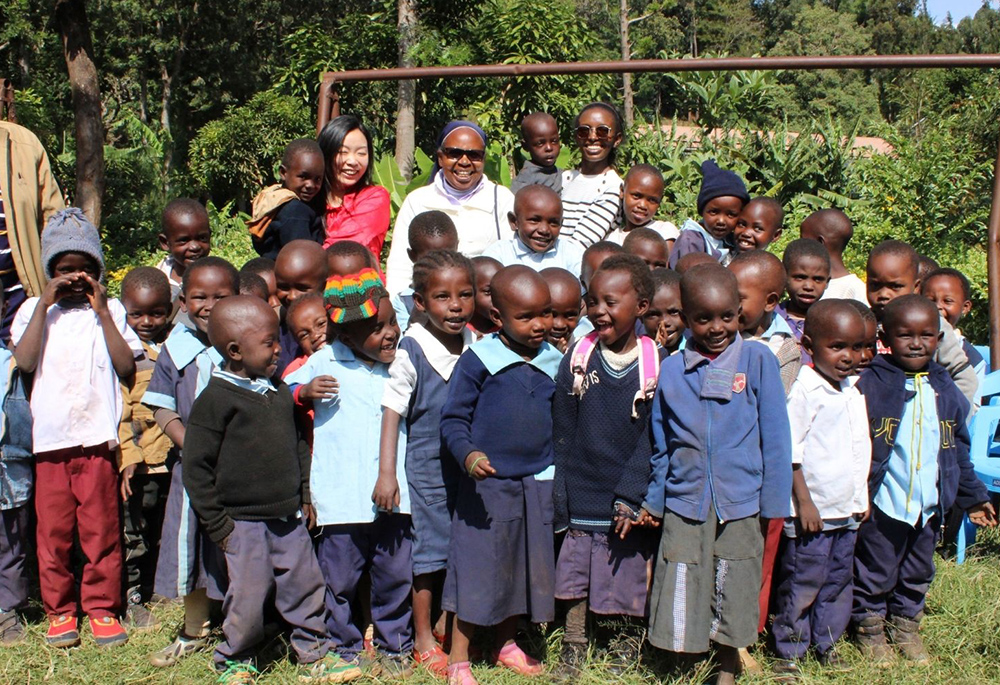
Sr. Lucy Kanjira, center, poses with her day care students during the International Day of the African Child 2025. Kanjira is project coordinator for the Congregation of Our Lady of Charity of the Good Shepherd Meru. (Courtesy of Doreen Mukami)
"Because of the GBV statistics in Meru County and the conversations about teenage pregnancies, we wanted to ascertain the degree of the crisis. We called a meeting [this year] for teenage mothers from the community," said Sr. Lucy Kanjira, the project coordinator for the Congregation of Our Lady of Charity of the Good Shepherd Meru. "To our dismay, 118 teenage mothers turned up in the first meeting. At each subsequent meeting, we welcome over 50 new faces. The most recent meeting last month had 459 teenage mothers."
"One girl caught my attention. She's 18 with two children and had teeth-bite marks on her face from her marriage. She now rents her own house," said Kanjira, noting that most of the girls she works with live a poorer life than their parents.
Kanjira attributes the high rate of gender-based violence to unstable families plagued with high rates of poverty. When young girls' basic needs are unmet at home, they befriend men who, in exchange for buying them basic needs like sanitary towels, demand sexual favors.
Doreen Mukami, the social worker for Brighten Her Future, the congregation's advocacy initiative for gender-based violence survivors, associates the high rate of gender-based violence with the cultural norms and values of the Meru community. Culturally, female genital mutilation was seen as a sign of nobility, and circumcised women were held in high regard. Though no longer a widespread belief, some communities still cling to the practice. Getting married in the local dialect is kugurwa, which loosely translates to "to buy."
Advertisement
"In the Meru culture, the binding factor in marriage is children," Kanjira told Global Sisters Report. "Once there are children, the women find it difficult to leave even when they are abused."
She told GSR that other forms of abuse in marriages are widely recognized, but that sexual abuse of women in marriage was previously hidden. It's only with the meetings they've been organizing that the issue has come to the surface.
The Brighten Her Future initiative focuses on helping survivors of gender-based violence from 16 to 35. The program empowers young mothers, sensitizes the community through dialogue on gender-based violence, and offers talks at primary and secondary schools.
The sisters organize a monthly meeting where they talk to girls about self-awareness, human rights, teenage pregnancy, female genital mutilation, early pregnancy, and sexual and gender-based violence. They've partnered with the Centre for Rights Education and Awareness (CREAW) in empowering survivors of gender-based violence.
The Centre for Rights Education and Awareness sponsored five counselors for three days for one-on-one counseling sessions with 100 young women and girls. Then, they organized a one-week training session for those aged 19 and above, focusing on financial literacy, starting a small business and budgeting. At the end of the training, the beneficiaries created a budget to start their own small business. They later received grants of 25,000 Kenyan shillings (about $193).
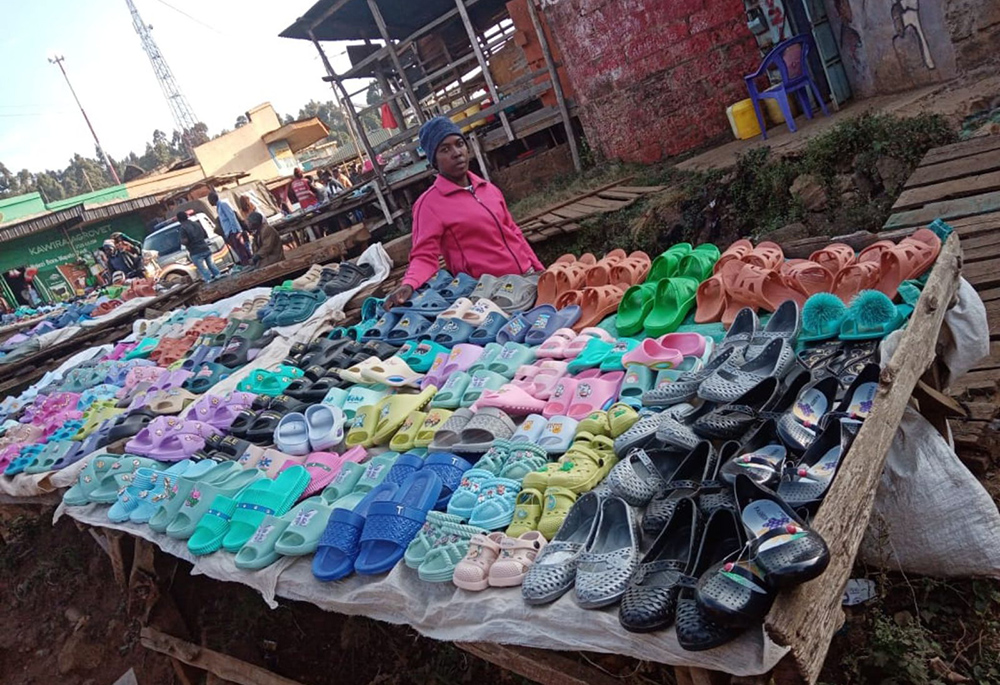
Judy Mukami, a beneficiary of the Brighten Her Future project, now sells Crocs at the Kangeta market. (Mourine Achieng)
Judy Mukami, 31, a beneficiary of the grant, was unable to continue her studies after class eight, equivalent to eighth grade in the United States, due to a lack of school fees, despite scoring 281 out of the possible 500. She was forced to work as a house helper for three years. Seeing a bleak future, she quit and got married. When she joined Brighten Her Future, she was a casual laborer. Today, she sells Crocs at the Kangeta market.
"I've never had a bank account my whole life, nor saved any money. But now, I have Kshs 5,000 [Kenyan shillings, about $37] in my account as savings," she said, brimming with pride.
Plans are underway to enroll 16- to 18-year-olds in vocational training institutions to learn hairdressing, beauty therapy, or fashion design.
"When we empower a young mother, she's able to protect herself from abuse, care for her children and hopefully break the cycle of poverty," Kanjira emphasized.
Since the congregation only has a part-time and a full-time social worker, they formed Safe Space, a group that brings together community stakeholders to help with advocacy. Safe Space includes the area chief, various health care professionals, police officers from the gender-based violence department, teachers and the Good Shepherd Sisters.
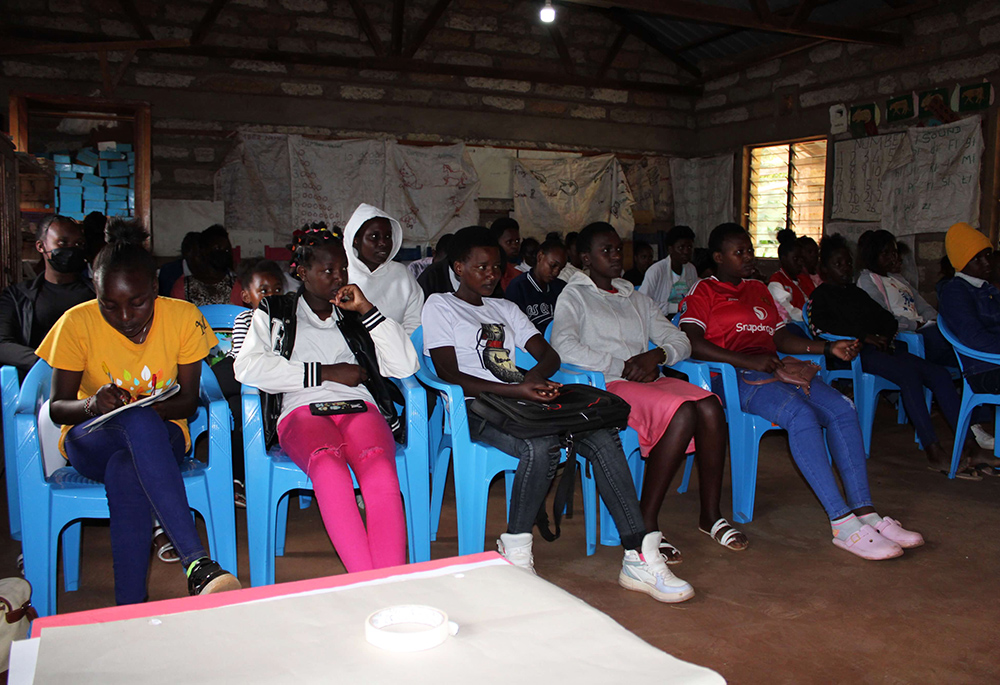
Teenage girls are trained on children's rights by a Safe Space officer from Igembe South. Safe Space organizes community sensitization forums on children's and human rights, as well as gender-based violence issues. (Courtesy of Doreen Mukami)
Karimi said that Safe Space organizes community sensitization forums on children's and human rights, as well as gender-based violence issues. At the end of every school term, the team visits schools to create awareness, as most cases of gender-based violence happen during the holidays.
While the initiative has made a positive impact, Kanjira said it's not without its challenges. A female Safe Space member was recently threatened by older women in the community and asked to stop creating awareness of violence issues with the nuns in the community.
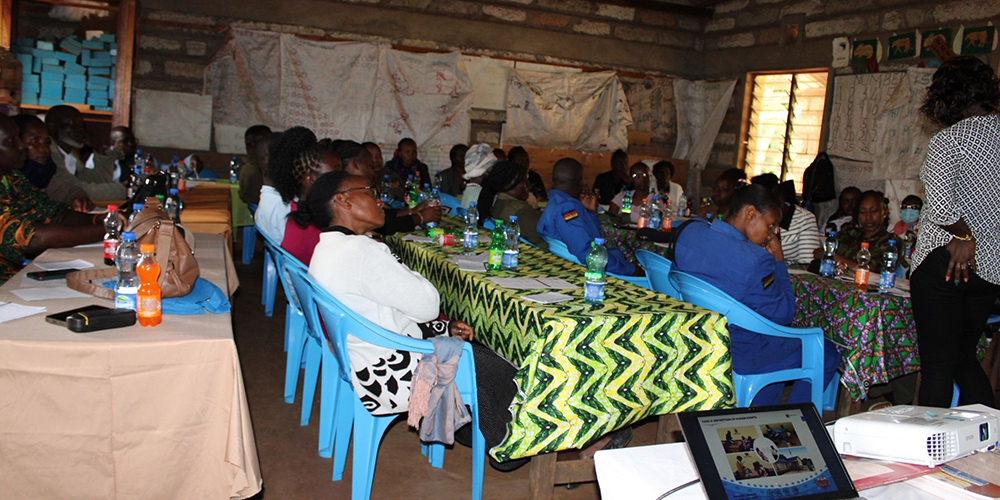
A gender-based violence meeting is pictured, organized by Brighten Her Future. A gender-based violence officer from Meru County spoke to attendees. Safe Space, a group that brings together community stakeholders to help with advocacy, includes the area chief, various health care professionals, police officers from the gender-based violence department, teachers and the Good Shepherd Sisters. (Courtesy of Doreen Mukami)
In another incident, she said, "We went to [talk with] children in a school about female genital mutilation, and they explained to us its advantages. It dawned on us that we still have a long way to go. In some areas, girls are circumcised as young as 8. By the time we reach them in primary schools, it's already too late."
The sisters acknowledge that, with the ever-increasing numbers at every meeting, the Centre for Rights Education and Awareness can’t sponsor everyone. As a solution, the sisters are considering reopening their former training center to increase the assistance they can provide.
Despite the challenges, Kanjira affirms their goal to empower the girls emotionally, economically and socially so they can rise again, meet their needs, and take care of their children.





